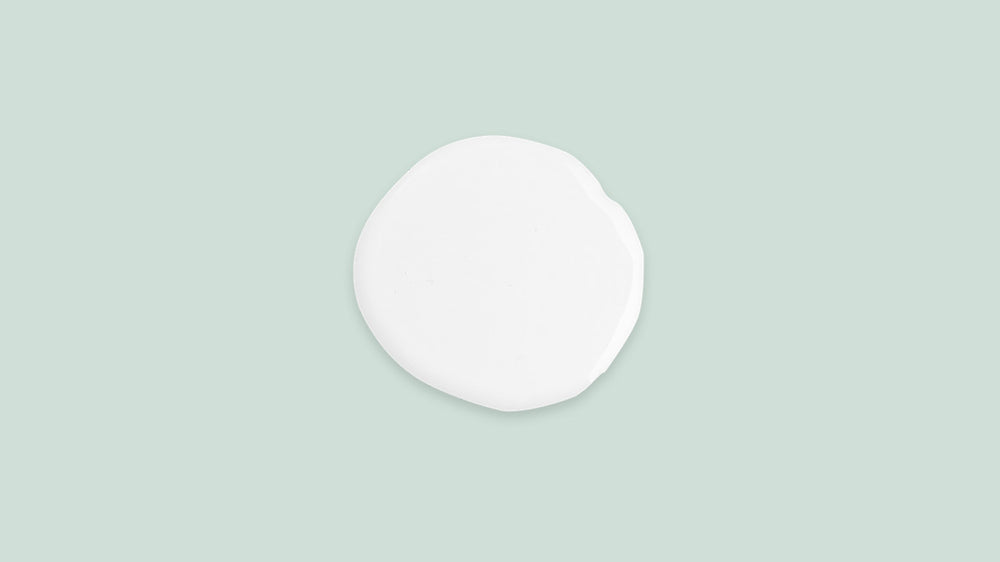Do you pay attention to the ingredients in the hair products you use? If so, you might recognize glycerin as a widely used hair care ingredient. Due to its moisturizing abilities, glycerin is also used in various skincare formulas.
Although glycerin offers a wide range of hair and skincare benefits, not all products containing glycerin are equal. Divi’s Scalp Serum has been formulated to provide the optimal benefits of this versatile compound by combining it with other safe, science-backed ingredients.
In this guide, the Divi experts take an in-depth look at this powerful ingredient, including the hair care benefits of glycerin and how its application can promote hair growth.
The History of Glycerin
The chemist Carl Wilhelm Scheele discovered glycerin in 1778. However, it had been in use long before this discovery. Sumerian clay tablets describe a soap-making process that used animal fat – taking advantage of the cleansing properties of glycerin – during the third millennium BC.
Today, glycerin has more than 1,500 applications. The compound is still an ingredient in soap, and food manufacturers use it as an additive. Glycerin is used in medicines such as cough syrup to make them more palatable and easier to ingest.
Glycerin also has several industrial applications. It is an ingredient in antifreeze, paints and resins. As a non-toxic plastic softener, glycerin is a component of food wrappers that prevents shrinkage.
What Is Glycerin?
Glycerin or glycerol, is a trihydroxy sugar alcohol compound existing naturally in plant and animal fats. Manufacturers can also produce a synthetic version of this alcohol, which has the same properties as natural glycerin. Due to the compound’s three hydroxyl groups, it is water-miscible with a hygroscopic nature.
The name glycerol comes from glykys, a Greek word meaning sweet-tasting. The compound is clear, colorless and odorless and has a similar appearance to water, but it is thicker. It is syrup-like in texture and has a sweet taste.
Glycerol is non-toxic, and the Food and Drug Administration (FDA) has declared glycerin safe for human use. Keep in mind, this is referring to Glycerol in its natural state—our Divi products are not safe for consumption.
Different Types of Glycerin
As a sugar alcohol compound, natural glycerin can be derived from animal fat or plant oil. It can also be artificially synthesized.
Plant-based Glycerin
Plant-based glycerin, also known as vegetable oil, is a natural form of glycerin coming from palm, soybeans and coconut oil. The vegetable oil extraction process involves exposing these triglyceride oils to high temperatures in high-pressure conditions. In some cases, manufacturers use lye or another alkali in this process.
The glycerin splits from the oil during this process and mixes with water. This coproduct is vegan and people can safely consume it without experiencing side effects.
When a product label lists glycerin in its table of contents, it is a plant-based compound. Vegetable glycerin is the most common form of this ingredient. It is the most affordable and readily available form to manufacturers.
Glycerin in Skin and Hair Care Products
Glycerin is a humectant, which means it attracts and binds with moisture. As a result, it is an important ingredient in moisturizing beauty products, such as lotions, shampoos and conditioners. When applied to hair, glycerin can help prevent shaft damage and splitting caused by dry hair strands.
The compound has a similar effect on the skin. Applying glycerin to your scalp can alleviate itchiness and prevent the formation of dandruff. Divi’s Scalp Serum features glycerin for hair growth and scalp health.
Hydrates and Moisturizes
When your hair doesn’t receive or retain sufficient moisture, it becomes dry. This causes the outer layers of the strands to break down, giving hair a dull or frizzy appearance.
For example, if you live in a dry climate or spend a lot of time outdoors – exposing your hair to the sun's UV rays – you are more likely to have dry hair. Professional swimmers who frequently swim in salty or chlorinated water also often experience dry hair.
Your regular hair care routine can also cause hair to dry out. These practices include:
- Washing your hair once or more per day
- Using abrasive hair styling products, shampoos or conditioners
- Frequently blow drying, straightening, or curling your hair with heat
- Regularly dyeing or applying chemical treatments to your hair
Health complications can also cause dry hair. These conditions include anorexia nervosa, hypothyroidism and Menkes syndrome, a rare genetic disorder.
As a humectant, glycerin draws moisture from the air and binds it to your hair. This hydration effect is long-lasting and it keeps your hair soft. The moisturizing properties of glycerin counteract the factors causing dryness and protect the outer layer of your hair strands.
Prevents Hair Splitting
Split ends and hair breakage often result from dry hair or a dry scalp. Your hair strands and tips can also break if your styling methods are abrasive. Tight braids and high ponytails can strip the proteins protecting your hair and cause it to break at the roots.
Other factors capable of causing damaged hair include chemical exposure, stress, genetic factors and environmental conditions. Glycerin application can stabilize your hair shafts and form a protective, hydrating barrier around them, thickening the strands. The compound also nourishes your hair, counteracting the factors that cause breakage and splitting.
Alleviates Dry Scalp
The list of potential causes of an itchy scalp is quite long and includes rashes, scabies, hives, ringworm and psoriasis. However, loss of skin moisture and dry scalp are among the most common causes of itchiness.
A dry scalp is usually due to contact dermatitis, which is a reaction to hair products. Scalp irritation often occurs when the chemicals in shampoo or conditioner strip the skin's natural oils.
If your scalp itchiness is due to a product reaction or dry environment, glycerin can provide relief. A 2017 study found glycerin improves skin barrier function, and just one application of this compound can hydrate your skin for up to 24 hours.
Prevents Dandruff
Dandruff is caused by excess oil production when dry scalp results from skin moisture loss. Oil accumulation can cause skin cells to build up, giving your scalp a red, scaly and shiny appearance. The flaking of these scales presents as dandruff or pieces of dry skin that remain on the skin between the hair strands.
Dandruff can be unsightly, and most people who encounter this issue are sensitive about their appearance. Like dry scalp, dandruff can also cause itchiness and scalp irritation.
Applying glycerin to the scalp helps regulate sebum production. As glycerin infuses the scalp with moisture, the skin produces less oil, which prevents dandruff from forming.
Prevents Scalp Infections
Folliculitis is a skin condition presenting as hair follicle inflammation resulting from bacterial infection. Without sufficient treatment, this infection can spread, causing itchiness, sores and hair loss.
By keeping your skin healthy and hydrated, glycerin applications lower your scalp's susceptibility to these infections.
As an FDA-approved topical treatment for infections and wounds, glycerin also has mild antimicrobial, bactericidal and antiviral effects. According to a Red Cross report, treatment of a wound with glycerin can significantly reduce inflammation within two hours.
The topical application of glycerin can also prevent conditions such as ichthyosis and other conditions causing dry, scaly skin.
Conditions Hair and Defines Curls
In combination with other ingredients, glycerin has a prominent conditioning effect, which softens hair strands and gives them a healthy luster. The protective layer of glycerin thickens the hair strands. If you have thinning hair, your hair care products should include glycerin.
The hydrating effect and viscosity of glycerin also improve the appearance of naturally curly hair. If your hair tends to be frizzy, you should make sure to use products containing glycerin to act as a humectant.
The added protective layer straightens your hair strands out somewhat, giving them a soft and healthy bounce. In moderate climates, glycerin is the ideal natural conditioner for most, if not all, hair types.
Repairs Hair Strand Damage
We know glycerin can prevent hair damage from abrasive treatments and environmental conditions. However, glycerin can also repair damaged hair.
Have you been applying harsh chemicals to your hair or wearing tight hairstyles for a long time? Your hair might have noticeable signs of damage. Using glycerin topically, such as with Divi’s Scalp Serum, can rehydrate your hair strands, repair them, and improve their appearance.
A daily glycerin application can sometimes restore hair damage within a few days. You should also make a hair care routine and practical lifestyle changes to help restore your hair.
Promotes Hair Growth
All the hair and scalp benefits of glycerin contribute to healthy hair growth. By hydrating hair shafts, promoting a healthy scalp environment, and regulating sebum production, glycerin applications make it easier for your hair strands to grow.
Glycerin is also useful for preventing split ends and glycerin scalp treatments promote hair root health, contributing to healthy hair growth.
How Do Climate Conditions Affect Glycerin Treatments?
In hot and humid climates, glycerin-treated hair might absorb excess environmental moisture, resulting in swelling of hair strands and disruption of the curl pattern.
On the other hand, in arid environments, a glycerin layer can pull moisture from your hair strands. In this case, a glycerin application can have the same dehydrating effect you are trying to prevent.
These situations demonstrate why it is important to apply glycerin correctly and in the right amounts. Divi’s Scalp Serum has been specifically formulated to deliver the right amount of glycerin needed to protect your hair in all conditions.
Which Hair Types Don't Benefit from Glycerin?
Glycerin is a safe and effective ingredient for most, if not all, hair types. It is especially optimal for people with dehydrated, coarse or thinning hair. It is also effective in treating dry scalp or dandruff.
Glycerin applications are not ideal for newly colored hair. After coloring your hair, wait for two washes before you apply glycerin to avoid stripping the color.
Divi’s Scalp Serum for Promoting Hair Health
Divi’s Scalp Serum is a vegan, cruelty-free formula helping you improve the environment for hair to grow. It features the optimal amount of glycerin for scalp health. Glycerin is blended synergistically with other clean, active ingredients. It is specifically formulated to create an environment promoting scalp conditions for healthy, strong and vibrant hair growth.









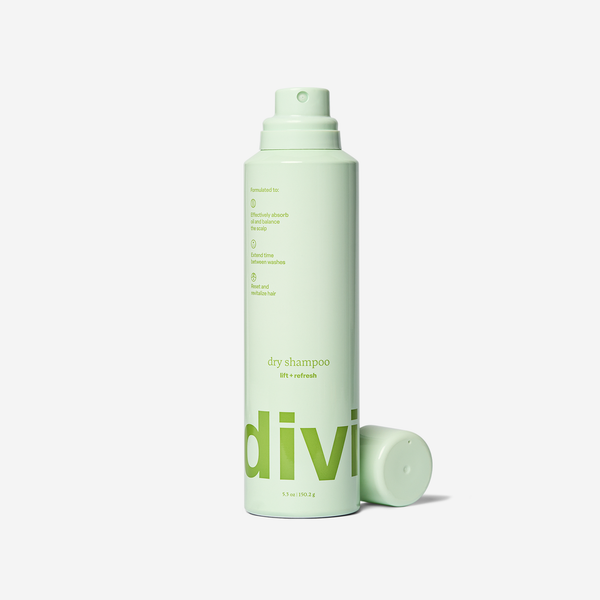

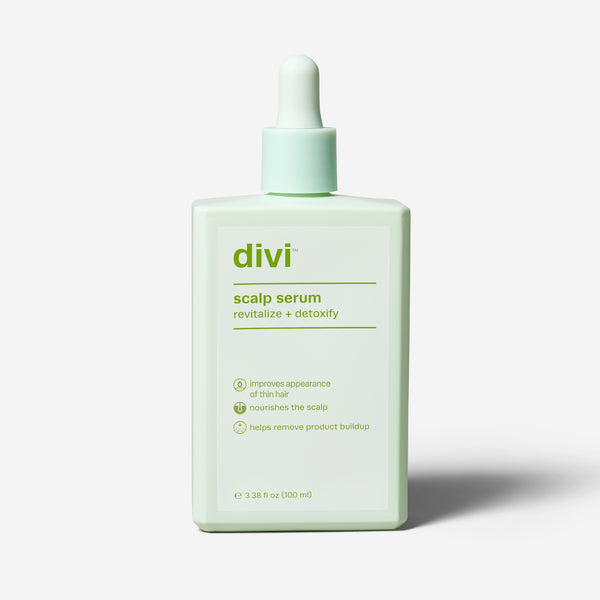

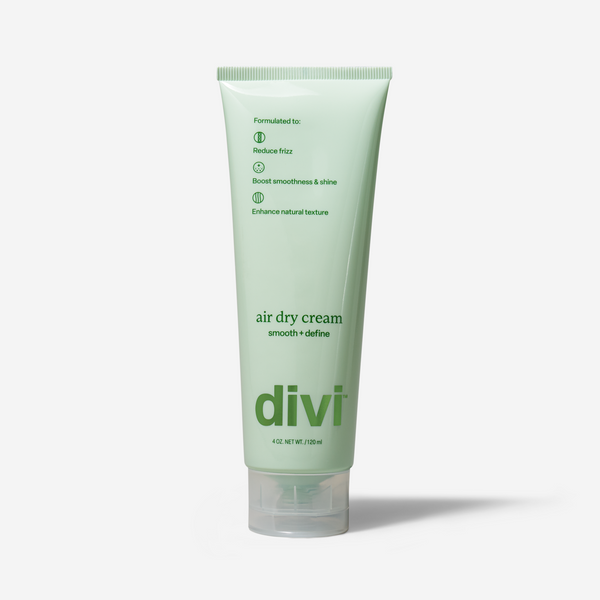
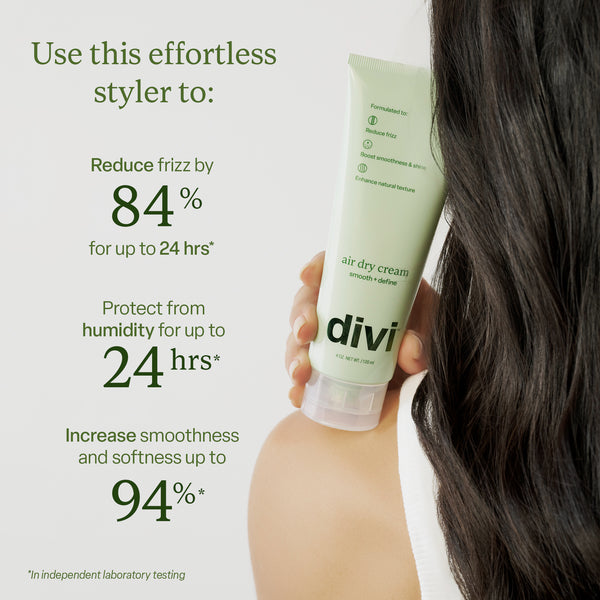
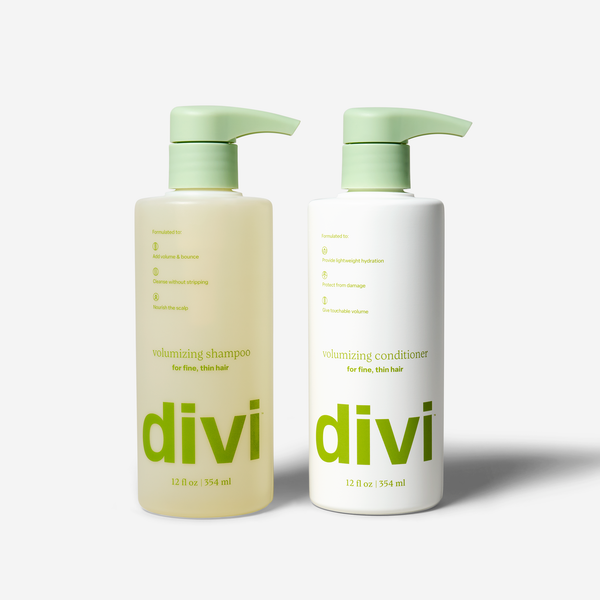

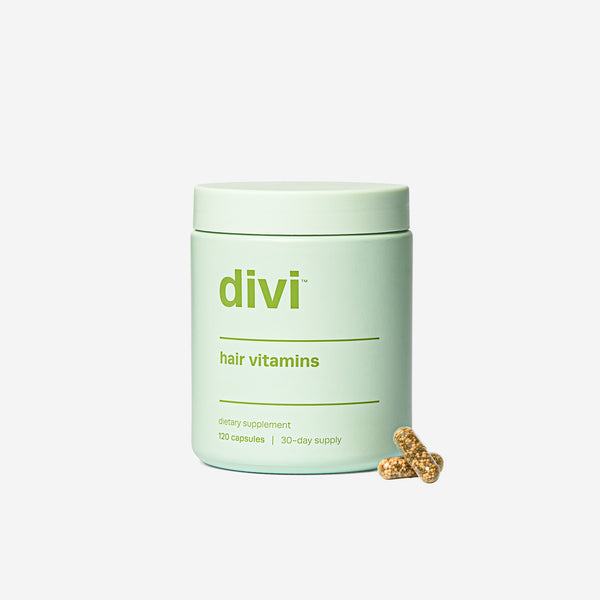
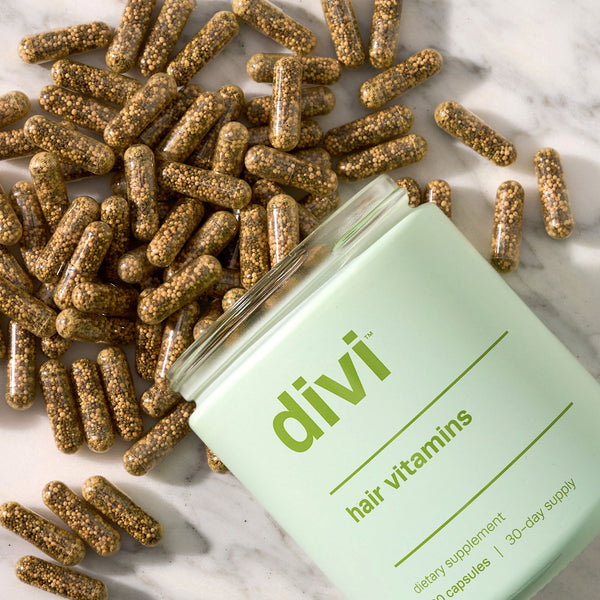
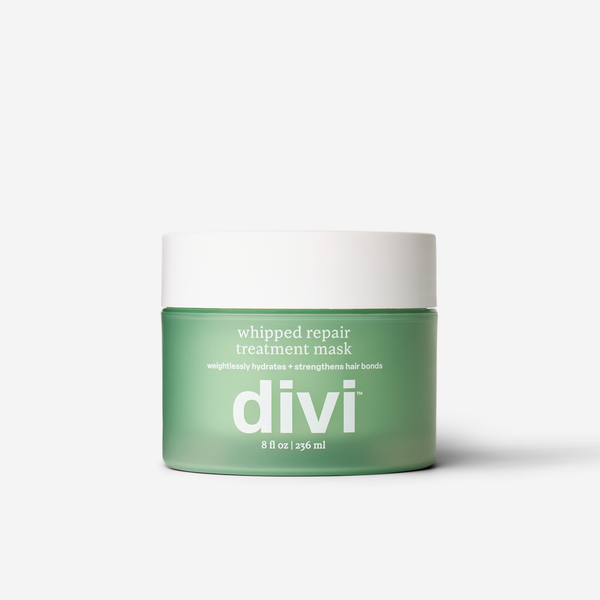
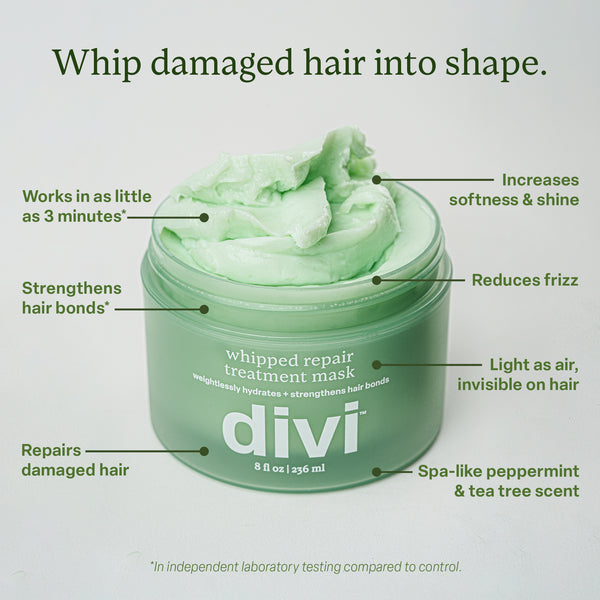
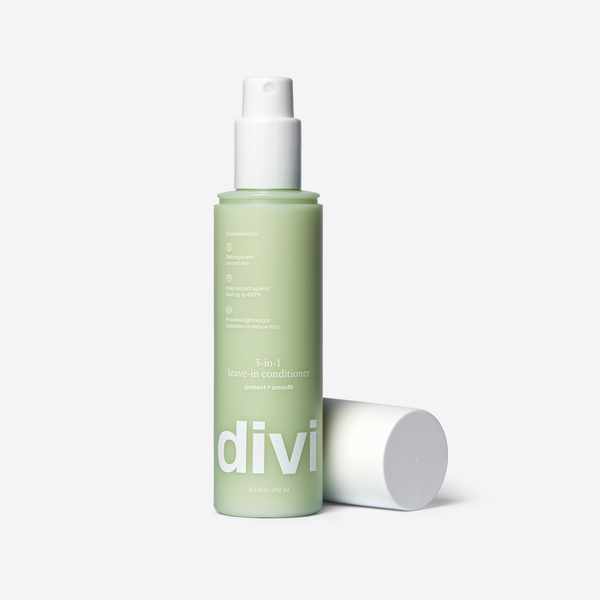



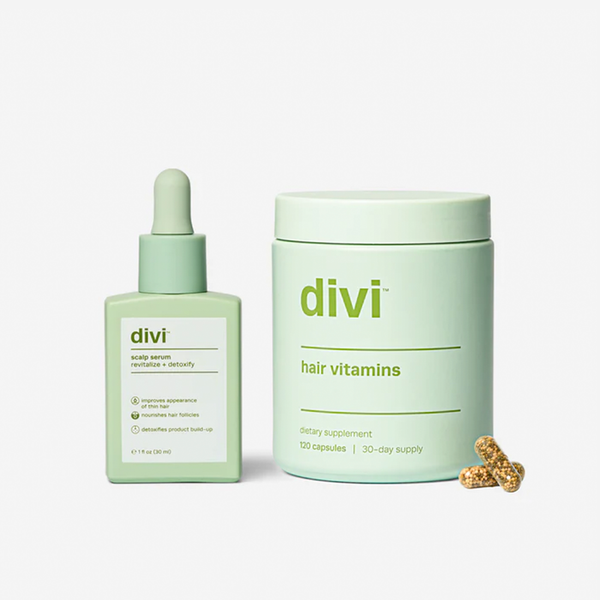
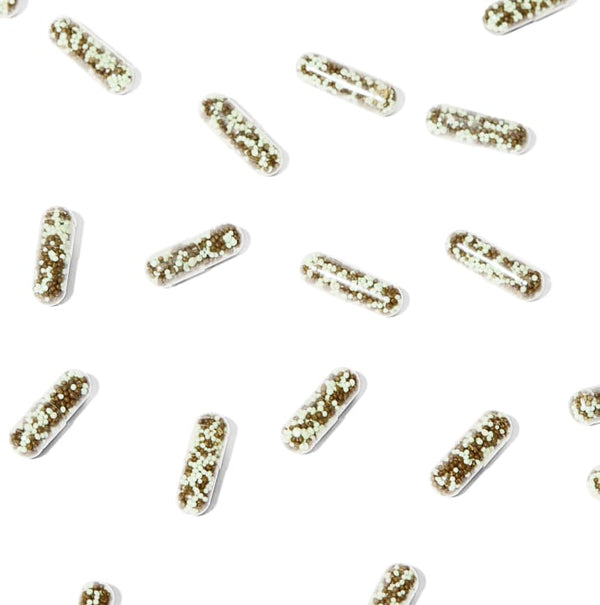
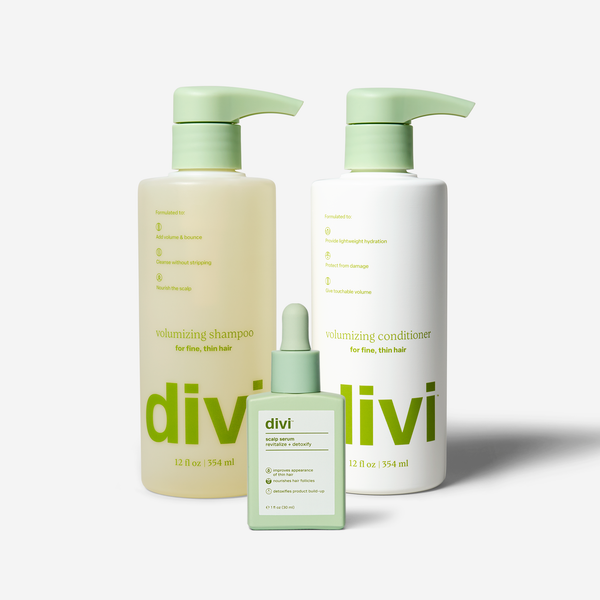
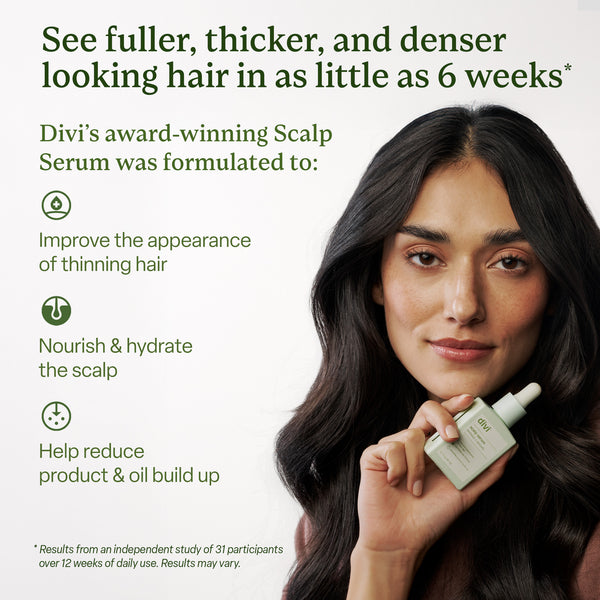


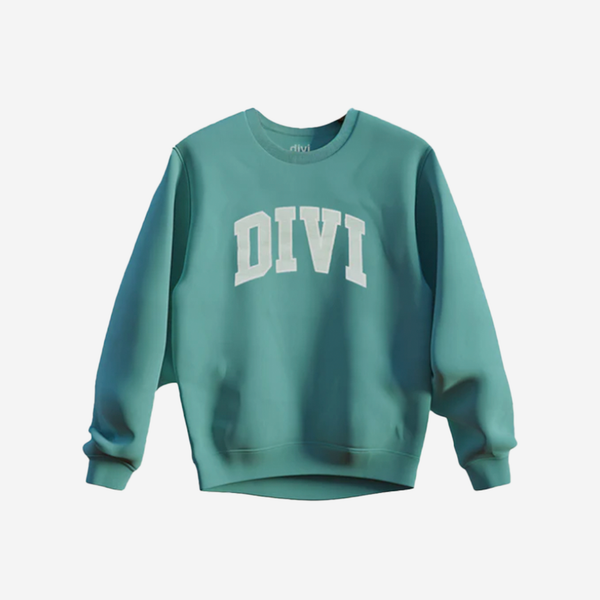
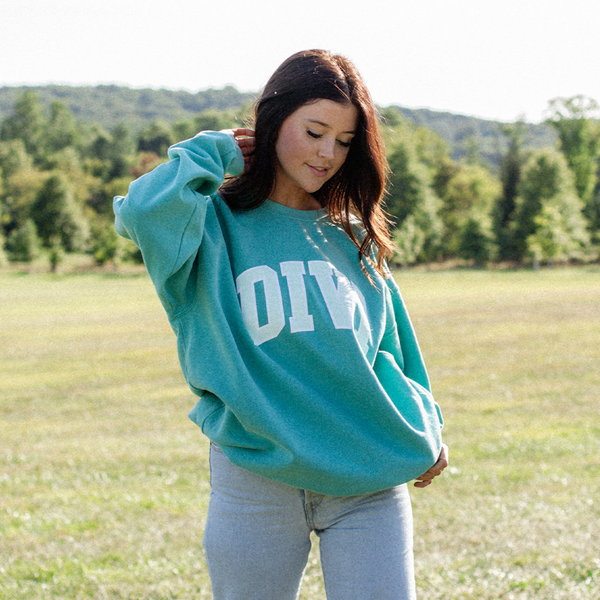




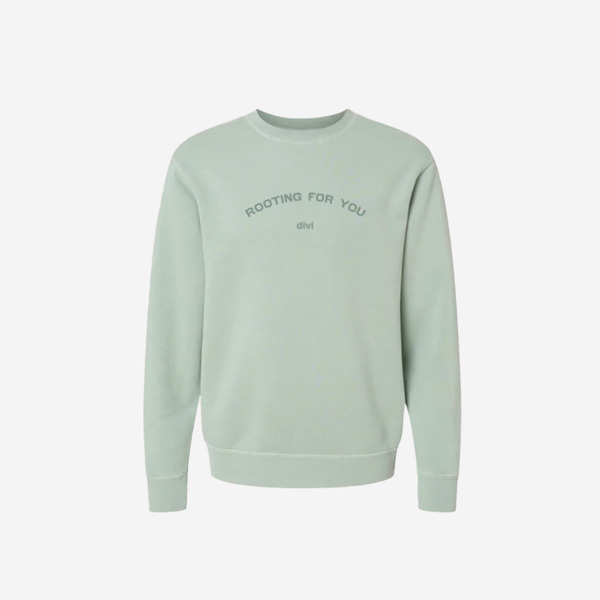


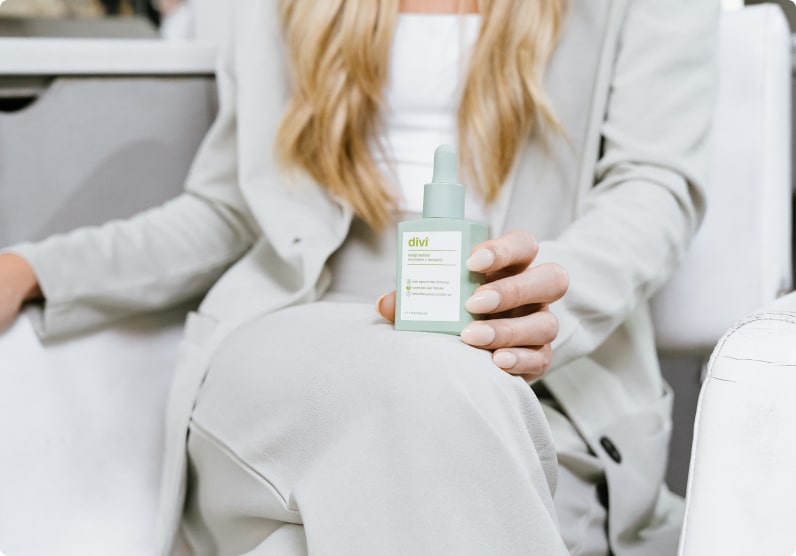






 30ml Scalp Serum
30ml Scalp Serum
 100ml Scalp Serum
100ml Scalp Serum
 Volumizing Shampoo
Volumizing Shampoo
 Hydrating Shampoo
Hydrating Shampoo
 Volumizing Conditioner
Volumizing Conditioner
 Hydrating Conditioner
Hydrating Conditioner
 3-in-1 Leave-In Conditioner
3-in-1 Leave-In Conditioner
 Best Sellers Bundle
Best Sellers Bundle
 Volumizing Starter Bundle
Volumizing Starter Bundle
 Hydrating Starter Bundle
Hydrating Starter Bundle
 The Healthy Hair Bundle
The Healthy Hair Bundle
 Hair Vitamins Trio
Hair Vitamins Trio
 Dry Shampoo
Dry Shampoo
 Hair Vitamins
Hair Vitamins
 Volumizing Shampoo & Conditioner
Volumizing Shampoo & Conditioner
 Travel-Sized Volume Duo
Travel-Sized Volume Duo
 Hydrating Shampoo & Conditioner
Hydrating Shampoo & Conditioner
 Travel-Sized Hydrating Duo
Travel-Sized Hydrating Duo
 Travel-Sized Dry Shampoo
Travel-Sized Dry Shampoo
 Travel-Sized Dry Shampoo Trio
Travel-Sized Dry Shampoo Trio
